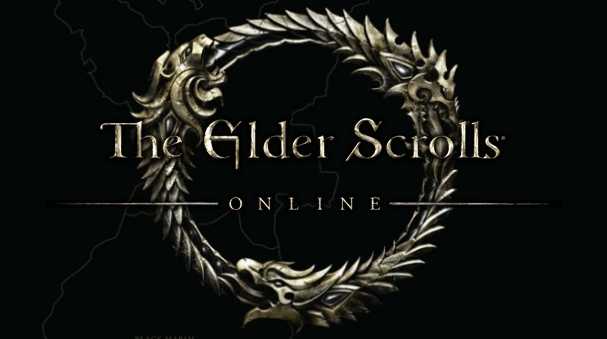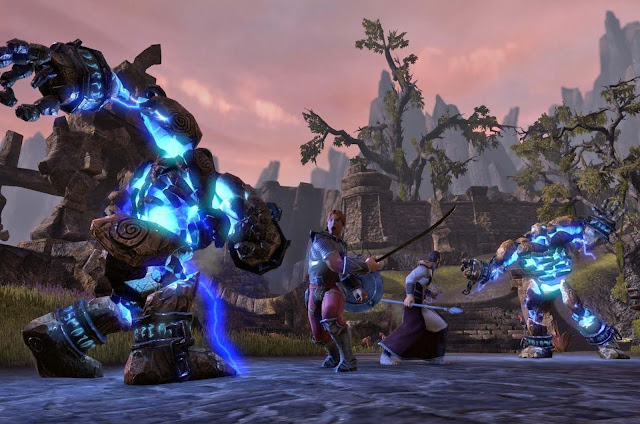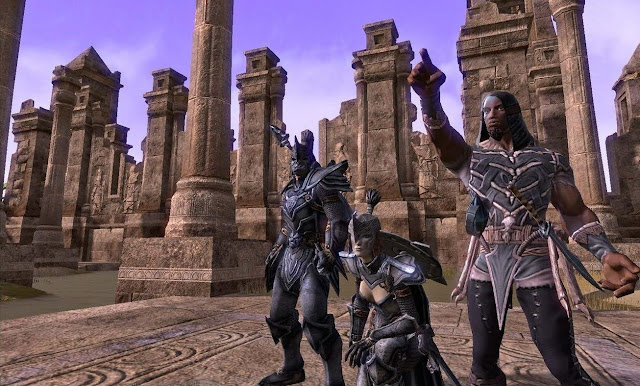[Source] Most of us should have known that The Elder Scrolls Online is coming, taking place much earlier before the events of Skyrim. The news of this long-running franchise going into the MMO realm faced much backlash from the fans and gamers alike, and I can feel their pain. This brought me back memories of how Warhammer: Age of Reckoning was screwed by EA.
Nixing various features which made games such as Marrowind and Skyrim unique, the combat system will not be the same as, from the developer’s mouth, latency is an issue. What sort of excuse is this? Not that I am promoting TERA or Dragon Nest, action combat is around since 2 years ago. In this new interview with PC Gamer, the combat is further explained, which is a bucket of crap for me personally.
Your first two slots are derived from your weapon. If I pick up a bow they’re bow attacks and if I pick up a sword then they’re sword attacks. If I continue to use that weapon over a period of time, I will get better with it, which will give me a wider variety of things that I can potentially do with my weapon attacks. So I can gain mastery of it by virtue of having it equipped, but I can still pick up any weapon in the game and be good with it. And that’s true of anyone.
On top of that, if I continue to use that weapon over a period of time I will get better with it which will give me a wider variety of things that I can potentially do with my weapon attacks. So I can gain mastery of it by virtue of having it equipped, but I can still pick up any weapon in the game and be good with it and that’s true of anyone. I think that’s an essential part of it
Your next three slots are derived from your class. You will have over the course of your progression many abilities and spells that you will get, more than three. But you want to pick the three that you think will support your weapon loadout in an interesting way.
So if I picked bow as my sort of principle weapon attack I might pick three abilities that are sort of snares. And that sort of creates a character that you might understand, like: ‘Okay, cool, I want to slow up a guy and pick him off and continue to kite him, cause I feel like that’s the gameplay I want to do.
And your sixth ability is your ultimate. It’s also a class ability and I will have more than one available to me through my overall progression but I can only ever put one on my bar because it’s really powerful. And you’re going to want to pick the one that supports that overall.
So I might just pick Summon Frost Atronach. And a Frost Atronach’s going to fall out of the sky and smash anyone he lands on, and then hang around and start beating on people. Yeah, that totally supports by rangery bow metaphor from earlier. That’s the character I wanted to play.
PvP designer Brian Wheeler interjects. “People also scream ‘Oh my god that is awesome’ when a Frost Atronach comes down.” (seriously? Who are they trying to impress?)
The key is that those abilities, like the weapon, I can start with and use effectively initially, but in order to master I must play with over a long period of time. Which is very much like the Elder Scrolls games, and is our own way of interpreting that. (this is no way similar to the TES games)
And then I think the sort of depth of the system in a lot of ways comes from the fact that you are allowed to swap out those abilities in whatever way you want, as long as you’re not currently in a fight.
So if I’m finding that this build just isn’t working and I’m getting countered over and over by sneaky rogues or fireballs, I can take the ability that I feel is going to help me in this scenario, and build a new character and try it out, and have this sort of deck building game… I’ll have varying levels of expertise with them, but by trying out various builds and various decks I’m going to become a master of all of them eventually.







